After using malloc() to initialize 5000 bytes of memory, how would I
reference the bytes in this memory space? For example, if I need to
point to a starting location of data within the memory, how would I go
about that?
Does it matter what I use to point to it? I mean I am seeing people
use bytes/int/char? Is it relevant?
as you have seen malloc allocates a block of memory counted in bytes, you can assign a pointer to that block and depending on the pointer type the compiler knows how to reference individual elements:
unsigned char *memblob = malloc( 1024 );
short* pshort = (short*)memblob;
now if you reference the second short value i.e. *(pshort + 1) or pshort[1] the compiler knows that it needs to add 2 bytes (sizeof(short)) in order get the next element.
float* pfloat = (float*)memblob;
now if you reference the second float value i.e. *(pfloat + 1) or pfloat[1] the compiler knows that it needs to add 4 bytes (sizeof(float)) in order get the next element.
same with own defined data types:
typedef struct s
{
short a;
long b;
} mystruct_t;
mystruct_t* pstruct = (mystruct_t*)memblob;
pstruct + 1 accesses the struct at offset sizeof(mystruct_t)
so it is really up to you how you want to use the allocated memory
